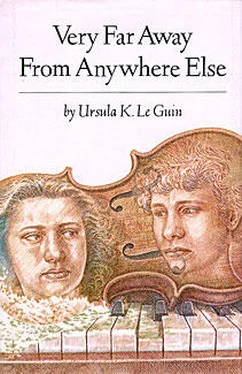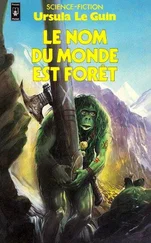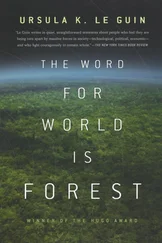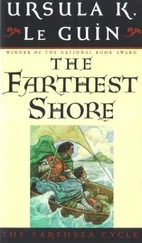Ursula Le Guin - Very Far Away from Anywhere Else
Здесь есть возможность читать онлайн «Ursula Le Guin - Very Far Away from Anywhere Else» весь текст электронной книги совершенно бесплатно (целиком полную версию без сокращений). В некоторых случаях можно слушать аудио, скачать через торрент в формате fb2 и присутствует краткое содержание. Жанр: Современная проза, на английском языке. Описание произведения, (предисловие) а так же отзывы посетителей доступны на портале библиотеки ЛибКат.
- Название:Very Far Away from Anywhere Else
- Автор:
- Жанр:
- Год:неизвестен
- ISBN:нет данных
- Рейтинг книги:5 / 5. Голосов: 1
-
Избранное:Добавить в избранное
- Отзывы:
-
Ваша оценка:
- 100
- 1
- 2
- 3
- 4
- 5
Very Far Away from Anywhere Else: краткое содержание, описание и аннотация
Предлагаем к чтению аннотацию, описание, краткое содержание или предисловие (зависит от того, что написал сам автор книги «Very Far Away from Anywhere Else»). Если вы не нашли необходимую информацию о книге — напишите в комментариях, мы постараемся отыскать её.
Very Far Away from Anywhere Else — читать онлайн бесплатно полную книгу (весь текст) целиком
Ниже представлен текст книги, разбитый по страницам. Система сохранения места последней прочитанной страницы, позволяет с удобством читать онлайн бесплатно книгу «Very Far Away from Anywhere Else», без необходимости каждый раз заново искать на чём Вы остановились. Поставьте закладку, и сможете в любой момент перейти на страницу, на которой закончили чтение.
Интервал:
Закладка:
“Because they expect me to.”
“But they expect wrong, don’t they?”
“I don’t know. There’s money, too.”
“There’s loans and scholarships.”
“There’s a lot of competition.”
“You’re telling me!” she said, fairly sarcastically. “So you have to compete. All you can do is try, isn’t it?”
She was hard to answer. But not the way my parents were. They were hard to answer because you could never get to the real point with them, and she was hard to answer because she’d got there first. But at least she didn’t leave me fighting a piece of phantom pot roast. Her mother brought us up some other kind of weird tea, and we talked some more, just sort of nothing, friendly talk; and at ten-thirty I left, figuring she might want to practice some more, because she’d said she tried to practice three hours a day. I drove around a few blocks and got home and went to bed. I was really tired. Like I’d walked a hundred miles. But the fog was gone. I went to bed and straight to sleep.
All that was on November 25th, like I said. Between then and New Year’s I got to know Natalie Field a good deal better. We got along well. Whenever we got together we started talking, and we talked like crazy for as long as we had. We didn’t often have very long, because she was really busy.
She gave lessons after school five days a week, and on Saturdays she worked from nine to two at a music school, teaching something called Orff Method to little kids. Nights she practiced, and Sundays she played in a chamber group, and practiced, and went to church. Mr. Field was a very religious man. No, I withdraw that. Mr. Field was a very churchgoing man. I don’t know if he was a religious man or not. Natalie was a religious person, and she probably got it from him, but she didn’t like church at all. She went, though. She had thought a lot about it and decided it was more important to her father than it was to her, so she’d give in on that point, as long as she lived at home. She thought things like that out. Sometimes going to church made her resentful, but she didn’t get all bogged down and tied up in her resentment, the way I did over the car. She just swore some about the dumb minister and went on with what she had to do next. She had her priorities straight.
She was almost eighteen, older than me. That can make a big difference at our age, especially since girls are supposed to mature faster psychologically than boys, but it didn’t matter to us. We just got along well. She was the first person I ever met I could really talk to, and talk with. The more we talked, the more there was to talk about. We both had last period free, and we could hang around and talk then till she had to go to her lessons; and sometimes in the evening I went over, and then there was Christmas vacation.
I think it wasn’t till vacation that I found out she wasn’t studying to be a professional violist. She played viola and violin and piano, but what she wanted to be was a composer. She worked on the instruments so she could earn money teaching, and get into music schools, and later on teach or play in an orchestra for a living, but that was all just means to an end. It took me quite a while to find that out, because she was shy of talking about it. I’m not sure she’d ever told anybody about it except maybe her mother. She was so self-confident and realistic about her playing, I didn’t realize at first that that covered up a whole area where she wasn’t self-confident, and was ambitious and idealistic and ignorant and unsure, so that it was hard for her to talk about. But it was the real center of her whole life.
“There aren’t any women composers,” she said once. It was Christmas vacation, and we’d been able to see each other several times. We were walking up in the park that day. It’s the best thing in our city, a huge park, a forest, with long hiking trails. We were walking the fat off Mrs. Field’s dog, a poop a keep named Orville. It was raining.
I know it is supposed to be Peke-A-Poo, but that dog was a poop a keep.
“No women composers? There’s got to be some,” I said. She said there were, but they didn’t amount to very much, or if they did you couldn’t find out, because if they wrote operas they didn’t get staged, and if they wrote symphonies they didn’t get performed. “But if they were good, really good,” she said, “they would get played, I think. There just haven’t been any absolutely first-class ones.”
“Why not?” It seemed peculiar when you thought about it. Popular music has a lot of women composers now, and most kinds of singing have always been half women; anyhow music doesn’t seem male, it seems human.
“I don’t know why not. Maybe I’ll find out why not,” she said rather grimly. “But I think it’s prejudice and stuff. Like the self-whatsit-thingo you told me.”
“Self-fulfilling prophecy?”
“Yeah. Everybody says you can’t, and so you believe it. It was that way in literature, till enough women stopped listening and just wrote enough great novels that the men really looked like idiots if they went on saying women couldn’t write novels. The trouble is, women have to be absolutely first class to get where third-class men get. It’s weird. I guess it’s the same thing as your levelers.”
Talking with her, I had worked out this theory, see, about what it was that made me feel so much an outsider. Why it is that people make heroes out of people who are good at sports or politics, but have this scorn and resentment against people who are good at thinking. Unless the ideas they think turn directly into money or power, in which case they’re heroes again. Anti-intellectual-ism seemed to be part of it, but not all of it; it was this sort of pulling things all down to the level where everybody is the same, like ants, that I called “leveling,” although these days it gets called by some fancy names like anti-elitism, and some really out of place names like democracy, names you shouldn’t even say unless you’re willing to think about them.
“Male chauvinist levelers?” I said.
“Yeah, right on,” she said. Orville came back down the trail, running like a fourteen-inch-high pregnant cow, and got mud all over my jeans, and then got mud all over her jeans.
“What kind of music do you want to write?” I asked her.
She tried to tell me, but I can’t tell you because frankly I understood less than half of it. I mean if you don’t know pretty clearly what a tonal row is, you are not going to understand somebody explaining what’s wrong with the theories about tonal rows. And I didn’t want to interrupt her and make her explain, because it wasn’t easy for her to talk about it at all, but she wanted to, very badly. She talked about order and humanity in music, and machine music, and random music, and I sort of understood that, but I didn’t know enough about modern music to be sure I understood. But some of it I could make sense of, because it was very close basically to some things I’d been reading by some modern psychologists about identifying with machinery—people thinking of the world, and themselves, as machines. Schizophrenics now often do that literally. They have to be plugged into a power source in order to function, and they receive instructions from a Great Computer. Reading about them I had thought about some of the rock groups with their electronic instruments and mikes and consoles and the stage full of wires, and the auditorium full of people who plug in emotionally with them, all depending on one wire from the power plant. Who says schizophrenics are crazy?
It was something along that line Natalie was after—getting music away from its dependence on machinery, but by machinery she also meant the big symphony orchestra and the big opera production. But she didn’t mean going back to “simplicity,” the folk singer with a dulcimer and a fake Kentucky accent. She said complexity was essential to high art, but the complexity ought to be in the music, not in the means of production. I said that sounded like Einstein doing it all with a pencil and some paper and his head, instead of a fifty-million-dollar accelerator; accelerators were very neat, but basically Einstein was even neater, and a lot cheaper. She really liked that. We turned back, and the sun came out and made all the wet forest look like crystal, and we went to her place, and she played me one of her compositions on the piano.
Читать дальшеИнтервал:
Закладка:
Похожие книги на «Very Far Away from Anywhere Else»
Представляем Вашему вниманию похожие книги на «Very Far Away from Anywhere Else» списком для выбора. Мы отобрали схожую по названию и смыслу литературу в надежде предоставить читателям больше вариантов отыскать новые, интересные, ещё непрочитанные произведения.
Обсуждение, отзывы о книге «Very Far Away from Anywhere Else» и просто собственные мнения читателей. Оставьте ваши комментарии, напишите, что Вы думаете о произведении, его смысле или главных героях. Укажите что конкретно понравилось, а что нет, и почему Вы так считаете.









